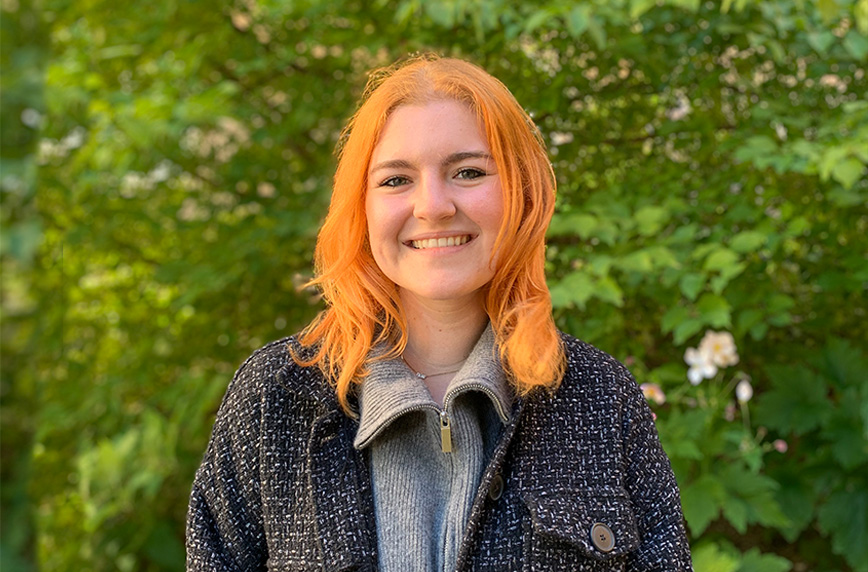Samantha
Samantha comes from Toronto, Canada. Her undergraduate studies in Architecture at the University of Toronto led her to specialise in the sustainability of built environment. She became passionate about adaptive, climate-resilient design through sustainable technologies. Much of her focus was on geo-engineering, specifically carbon capture systems, where she was curious about what the implementation of this technology would look like for energy transition within the urban fabric of our cities. Apart from her studies, her greatest interests are cooking and fashion.

Why did you choose this Master’s programme at KTH?
I opted to study Sustainable Technology at KTH because I was impressed with how practical the education is in following the needs of employers from job postings. While I respect research and theory, I believe it is equally crucial to put knowledge into practice and seamlessly integrate it into the programme's course structure. When deciding on KTH, I looked at the alumni output and saw that KTH students had been innovative leaders, positively changing how we live our everyday lives. Being a part of a school that encourages and supports innovation drew me to KTH and the Sustainable Technology programme because innovation is an essential component of sustainability and is always progressing. The Sustainable Technology programme is giving me the chance to be the change agent I want to be.
What are the best aspects of your programme?
The best aspect of my programme is that it allows me to personalise my education. If I want to be a generalist, I can be one, and if I want to specialise, I can do so. Furthermore, I believe that the case study learning style and collaborating with companies are some of the best opportunities for a master's education at KTH.
Have you chosen a specialization track within the programme?
I opted to specialise in management because I have a strong interest in developing decarbonisation strategies and anticipate doing so after graduation. I want to advise firms on minimising their greenhouse gas emissions, and the management specialisation targets my future ambitions by offering management, economics, modelling, and LCA courses.
How do studies at KTH differ from your previous studies?
Studies at KTH differ significantly from my previous studies. At my home institution, there was a lot of importance placed on theory and individual work. However, at KTH, my studies are very much emphasised by group work and a practical education-related approach, testing it through case studies from the industry, which is highly valued as it prepares students to step into the workplace.
What do you want to do after graduating?
After graduation, I intend to work as an international firm's sustainability/decarbonisation consultant. I want to use my motivation to be a change agent and create a new sustainability reporting framework that makes reporting scope three emissions easier by integrating data from third-party suppliers. Furthermore, I am considering getting a PhD or an MBA.
What would you like to say to students thinking of choosing KTH for master’s studies?
From an international student's perspective, my recommendation to students considering attending KTH for master's studies is just to do it. There are many benefits to studying abroad in terms of educational and personal development. As well as, the international recognition of KTH through world rankings supports this decision. KTH produces a lot of brilliance, and it's exciting to think that we, as KTH students, can be a part of it.
